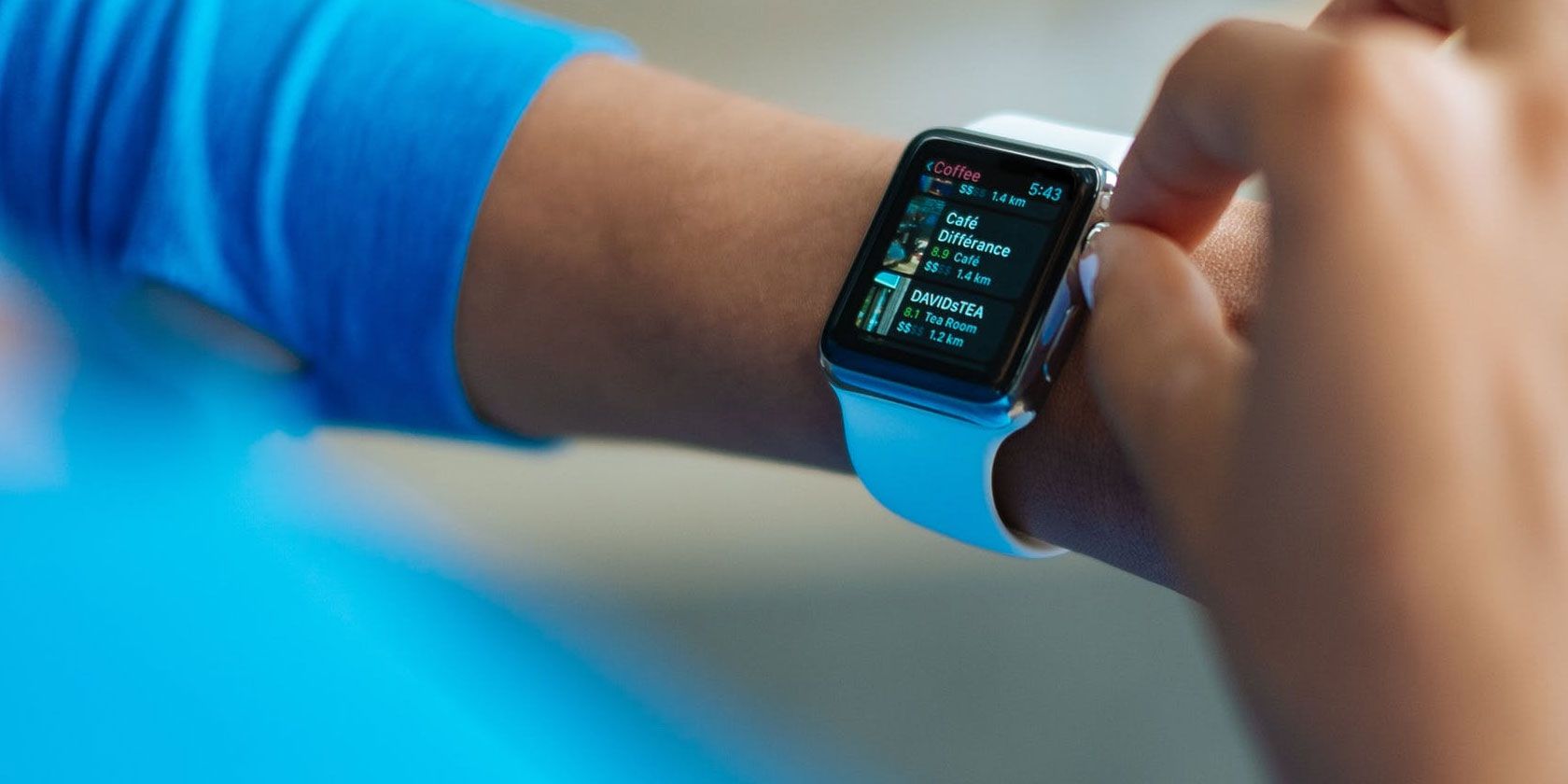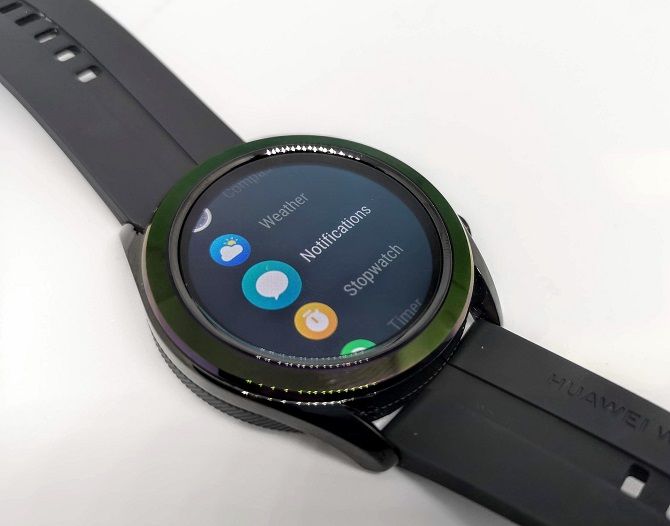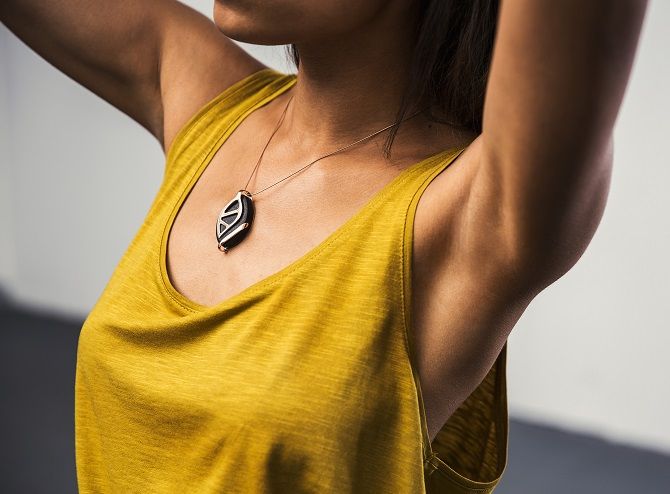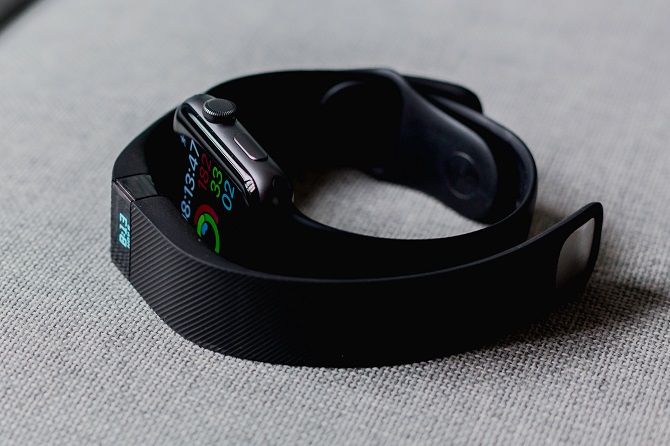Smartwatches and fitness trackers are among the best wearable tech accessories for upping your exercise routine. From tracking your steps and heart rate monitoring to specific workout logs and activity statistics, these devices can help you achieve your fitness goals.
However, while they are often grouped together, smartwatches and fitness trackers are not the same thing.
So then, what is the difference between the two types of devices? And how do you choose which type suits you best? Here's everything you need to know.
What Is a Smartwatch?
A smartwatch is a wearable tech accessory that comes in the form factor of a typical wristwatch. However, its ability to sync with and control functions on your smartphone is what makes the device smart.
As a result, smartwatches do much more than tell the time. Their exact features vary between brands, but smartwatches come with widespread functionality over-and-above simple activity tracking. Most smartwatches let you check your notifications, read messages, view incoming calls, and more.
Smartwatches often have fitness functionality such as step tracking and heart rate monitoring built-in. However, these fitness features are not the primary function of the device.
Different brands will prioritize sleep, exercise, and heart monitoring to varying degrees. But they will also have a significant number of other features that aren't related to activity tracking.
Other common features of premium smartwatches include music apps controls, text message reply functionality, voice note recording, NFC payment capabilities, and phone call management features.
A few examples of smartwatches include the Apple Watch, the Huawei Watch GT, the Samsung Galaxy Watch, and the Fitbit Versa.
What Is a Fitness Tracker?
A fitness tracker is a wearable device that gathers exercise and activity-related data for its user. These trackers can come in a variety of form factors, from wristbands to necklaces to clothing clip-on accessories.
In fact, some fitness trackers don't feature any type of LED screen or interactive face. Rather, you can only view the data from these trackers through their associated smartphone app. These trackers are usually simple pedometers or sleep trackers---and lack features such as heart-rate monitoring.
Some fitness trackers, like the Bellabeat activity trackers or the Huawei Band 3e, have a removable core unit. These are usually the size of a token. As a result of their small size, you can move them between different housing accessories such as a buckle, bracelet or necklace. In fact, some trackers let you discretely clip them onto shoelaces or a bra strap.
Fitness trackers' primary functionality centers on activity tracking. As such, features outside of this core functionality are usually limited or completely absent.
Advanced fitness trackers may include an LED screen, specific activity tracking, a heart rate monitor, and vibrating notifications for phone messages. However, they do not typically feature many apps, the ability to reply to messages, or ways to remotely interact with your phone.
So while fitness trackers sometimes come in the form factor of a wristwatch or bracelet, their core functionality is their defining characteristic.
A few examples of fitness trackers include the Fitbit Inspire line, the Huawei Band, and the Xiaomi Mi Band. Some of the most minimalistic fitness trackers include the Bellabeat Leaf Urban and the discontinued Jawbone UP brand.
Smartwatches vs. Fitness Trackers
While a smartwatch can act as a fitness tracker, a fitness tracker focuses mostly on activity tracking and little else. Some more advanced trackers are available, providing some notification and app functionality. However, fitness tracking remains the primary focus.
On the other hand, a smartwatch offers a far more well-rounded type of wearable device. In fact, some standalone smartwatches now feature eSIM functionality so that they don't need to be in range of the paired smartphone to use them.
Smartwatches also come with more app controls, native functionality, and customization.
As a result, fitness trackers are usually cheaper than smartwatches. They are also often more lightweight, compact, and can come in multiple form factors. Fitness trackers also have longer battery life due to their limited functionality.
Smartwatches, on the other hand, usually feature LED screens the size of a large wristwatch face, come in a single form factor, and are often significantly more expensive than activity trackers. They also imitate analog watches more closely in terms of their appearance, often including buttons that look like the crown, winding, and pusher buttons you'd find on an analog watch.
Should I Buy a Smartwatch or Fitness Tracker?
Whether a smartwatch or a fitness tracker will suit you best depends on your needs and a few other considerations.
There are a few questions you should ask before making a decision, including:
- What's your budget?
- What will you use the device for mostly? (e.g. tracking workouts or remotely controlling smartphone apps)
- How compact do you want the device to be?
- Are your workouts likely to damage a larger screen?
- How essential are features such as music navigation and answering calls?
- How often are you willing to charge the device before you consider it inconvenient?
If you want to get a wearable that tracks activity for as little money as possible, you should get a fitness tracker. You may also want a fitness tracker if you're worried about cracking a watch's screen or if a large watch on your wrist will bother you.
Even if you want a device with a touchscreen and a few extra features, you could still consider a premium fitness tracker. However, this option works best if your main goal is tracking workouts and activity.
But if you want a large number of extra features besides tracking, and don't mind the larger form factor and extra cost, you should look at getting a smartwatch instead. While smartwatches in general cost more than fitness trackers, you can still find affordable smartwatches from many brands.
What to Ask Before Buying a Smartwatch or Fitness Tracker
Now that you know the difference between a smartwatch and fitness tracker, you can decide which is the best for your needs. However, there are a few more things you should ask yourself before buying a wearable.
From whether you exercise consistently to whether the data will motivate you, here are questions to ask before you buy a Fitbit or other wearable fitness devices.




